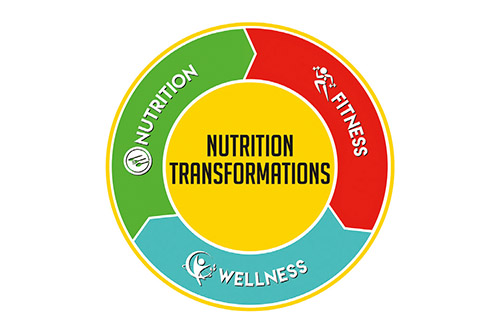
Dear Jenn,
I’m a 16-year-old girl finishing up my junior year in high school. This year has been the worst, with college applications, AP classes, mandatory volunteer work and a double curriculum. I’m glad the school year is coming to an end! I want to enjoy school, but it’s a lot. My friends and I joke about not needing a senior year. If all we take are AP classes next year, we might as well go directly to college! My schedule is tight, and I’ve not been able to “work out.” I feel stressed and have gained weight. My clothing is tight. I feel fat and horrible. I’m scared I have no control and will continue gaining weight.
Sincerely,SOS
Dear SOS,
I understand your dilemma. I too went to yeshiva high school and my children as well. There is much pressure in the junior year of high school and into the senior year. Sometimes I think AP classes might not be worth it. You can get into colleges without them. APs add extra pressure when there’s already pressure preparing for entrance exams, along with a double curriculum. But that’s another discussion. There is a lot you can do to help yourself and stop this weight-gaining process. Read on…
It’s simple. Weight gain is caused by consuming excess calories. By not expending excess calories, the body converts the calories into fat. Therefore, eating and exercise are both involved in weight management. Let’s explore both…
What Kind of Hunger Do You Have?
It’s likely you’ll gain weight when you are eating “whatever you want whenever you want.” Emotional stress can cause emotional eating. I’ve previously written about this topic. SOS, you write that you are stressed. Perhaps part of your weight gain is related to diet.
True hunger is when the body must refuel. Time is a factor. If you eat breakfast at 7:30 a.m. you will feel hungry by noon. The body is “physically” calling for food and you will likely feel hungry until you eat. Emotional hunger is feeling hungry because of how you feel. Feeling tense, upset, nervous or stressed can trigger a desire to eat. Time is not a factor. This feeling of hunger can happen even if a large meal was just consumed.
Comfort Foods
Chips, pretzels, ice cream, cookies, cake, doughnuts, chocolate, pizza and pasta … yummies! These food products have a stimulating effect on the hypothalamus. The hypothalamus is a part of the brain that releases a hormone called dopamine, which makes you feel good. Perhaps you learned a little about dopamine in AP bio?
Comfort foods are sought when a person feels emotional. These foods make you temporarily feel soothed, happier and calmer but unfortunately, tend to be high in calories, low in essential nutrients and encourage weight gain. Some people mindlessly munch on these foods without even tasting them. The act of chewing and swallowing repeatedly is calming. Unfortunately, there is a price to this unhealthy bingeing behavior. For many, after the emotional eating binge is over, there is a feeling of being stuffed, guilt, shame and weight gain.
Questions for you, SOS: Are you eating because of stressful feelings? Can you relate: Feeling upset … hungry! Need for, let’s say … sweet, soft, creamy, and soothing … Ah, ice cream! When you study do you munch? If yes, what kinds of foods do you desire? A healthy salad or chips? Chocolate? Does it feel soothing or stress-relieving munching while studying? It’s not uncommon.
For some people turning on the TV stimulates the desire to nosh. Why? Because watching TV and “zoning out” munching on treats feels good. Going to see a movie? Many people visit the snack bar before the show starts. They purchase all kinds of goodies and munch mindlessly while watching the movie. The excuse for movie bingeing is that “eating is part of the experience.”
Emotional eating is a behavior learned in childhood. Some cultures encourage it as well. Emotional eating is habit-forming, triggered by feelings or scenarios and associated with a hormonal reaction.
TV, movies, kiddushes in shul, being upset about a social situation, a problem at a job and even studying can be triggers. Social situations such as sitting around a Shabbat or Yom Tov table for hours eating and talking is a culturally fattening activity.
The next time you get “the urge,” ask yourself if you are truly hungry or just feeling anxious. It may be hard to tell the difference. Therefore, analyze. Is my stomach growling? Do I feel physically weak? Am I thirsty? When did I last eat? Am I eating just because food is in front of me? If you just finished dinner and you “suddenly feel” like munching, wait a little while, distract yourself and wait for the feeling to go away.
It is better not to eat while studying. If you do, try to break the habit. If you must munch, keep hydrated with water and nibble on vegetables, which are low in calories and high in nutrients.
Other Habits to Consider
Eating quickly and consuming multiple portions leads to weight gain. This is also mindless eating and related to feeling emotional. Having things on your mind like a big test or an uncomfortable social situation at school can affect how you eat at meals. Slow down! Relax while you eat. Be conscious of and think about the taste and textures of your foods. Meals are breaks, like recess or a free period. Let your stomach and brain synchronize. You will eat less and be refreshed.
Keep in mind that problem-solving and stress-related feelings are best resolved by directly addressing the issues and not trying to eat them away. I truly understand that this is easier said than done.
The Original Concern: Having Time for Exercise
Life needs balance. Time to sleep, eat, study, friends, and exercise.
SOS, do you participate in a school sports team? Team sports are a good way to boost exercise. If you are not on a sports team, is there any sport in which you can engage? Consider pickleball! If you’re not into sports, do you have home gym equipment? If yes, lucky you! Use it. And if you don’t have gym equipment, there are online exercise routines. Some are more vigorous than others and vary in time involved. Lastly, you can always go for a walk or a quick jog—and there are no fees.
SOS, if you want to exercise as you claim, then you must find time and commit to doing it regularly. Review your schedule. Flexibility and mind frame will go a long way. Thirty minutes daily would be great.
Suggestions
1. Exercise for 30 minutes first thing in the morning. Get up early enough to do this before school. Push yourself!
2. If exercising is too hard in the mornings, then exercise as soon as you get home, before dinner and homework.
3. Sundays are good days to exercise. No school, no excuse!
4. Exercise before Shabbat on Friday. This time of year, you can, because Shabbat starts late.
5. On Shabbat find a friend and/or sibling who might like to join you for a brisk walk or go yourself. Just do it!
6. Vacations or days off from school are perfect to find time to exercise. No vacations from exercising!
Conclusion
High school is tough. There are many pressures both scholastic and social. Studying hard for good grades and rewarding college entrance exams is stressful. Having time to exercise, fun with friends and adequate rest is a challenge. But you can take control and make smart decisions regarding your life. Consume high-nutrient, healthy, calorically wise foods and control portion sizes. Avoid high calorie nosh; instead snack on fresh fruit and vegetables. Control emotional eating behaviors. Eat when truly hungry and enjoy your food. Eat slowly and taste flavors and textures. Hydrate and sleep enough hours to function.
For more information about weight control, health control, emotional eating, exercise and living the right way call Nutrition Transformations. We will help you. Weight-loss medications are available as needed. Including for teens if appropriate.
Yours in good health,
Jenn
718-644-1387













